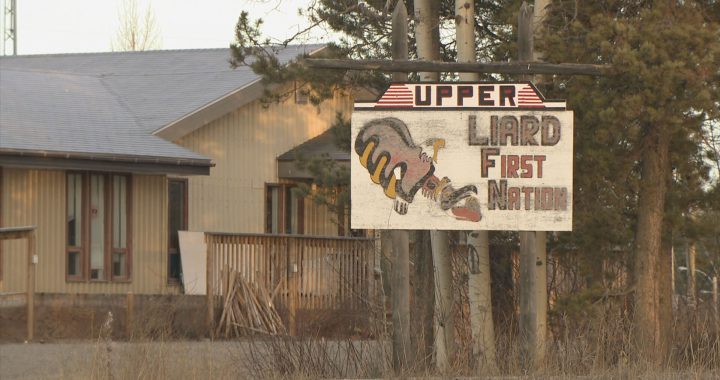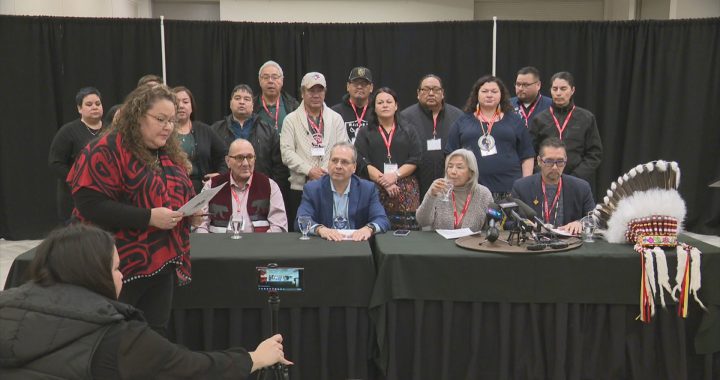
Alberta’s United Conservative government is pausing all approvals of large renewable energy projects in response to what it says are rural and environmental concerns.
In a statement Thursday, the government said the Alberta Utilities Commission is to institute a six-month moratorium on approving all wind and solar power projects greater than one megawatt over issues of development on agricultural land, effect on scenery, reclamation security and system reliability.
“We are proud of our leadership in responsible renewable energy development and we are committed to its continued growth,” said a statement from Nathan Neudorf, minister of affordability and utilities.
“This approach will provide future renewable investments with the certainty and clarity required for long-term development.”
With few regulatory barriers to entry and abundant wind and sunshine, Alberta has been a leader in renewable energy development in Canada. In 2022, 17 per cent of the province’s power came from wind and solar — exceeding the province’s 15 per cent goal.
There are another 15 renewable energy projects before the Alberta Utilities Commission, representing hundreds of millions of dollars in investment.
The Business Renewable Centre, a group that links buyers and producers of renewable energy, said Alberta was on track to see $3.7 billion worth of renewables construction by 2023, creating more than 4,500 jobs.
Neudorf said concern over that expansion is being expressed at commission hearings. The commission has written a letter to his office to that effect, he said.
That growth is part of what’s behind Thursday’s announcement, said University of Alberta energy economist Andrew Leach.
“The reason that this is happening is because renewable energy has taken off in Alberta. The power grid is wide open for investment,” Leach said.
“This is just how fast the energy transition is moving. And because Alberta has been open to it, it’s almost gone faster than anybody could have expected.”
He said the projection of solar development tripled just between May and June, from 2,000 to 6,000 megawatts.
“The grid operator really (was) not prepared for this rush.”
Paul McLaughlin of Rural Municipalities Alberta is welcoming the move, saying his group wants to see an approval process that takes local concerns into account.
“Rural municipalities cover roughly 85 per cent of Alberta’s land and their voices must be included in the approval process for all renewable energy projects,” he said in the government press release. “We look forward to working with the Government of Alberta to create an approval process that balances provincial and local perspectives.”
Environmental groups were quick to condemn the move.
The Canadian Climate Institute said on social media that the moratorium will hurt business.
“Robust reclamation should be required for all energy generation, but pausing approvals is a disruptive market intervention that will create uncertainty for businesses and discourage (investment) when clean electricity is quickly becoming a competitive necessity,” it said.
“This moratorium on renewable energy is bad for business, bad for the environment and bad for Albertans,” Allen Braude of Environmental Defence said in a release.
“Scaling up renewable energy is essential to addressing the climate crisis. Stopping now makes no sense.”
Scientists involved in a federal government report predict extreme weather events will get more severe and could present the most challenging, and expensive, consequence of climate change in the three Prairie provinces of Manitoba, Saskatchewan and Alberta.
That means more intense rain generating more powerful floods. It means hotter summers, drier tinder and more destructive wildfires in a region that, within the last seven years, witnessed two of the costliest weather-related disasters in Canadian history.
“There’s good scientific evidence, now, that the severity of these events is worse because they’re occurring in a warmer climate,” said Dave Sauchyn, director of the Prairie Adaptation Research Collaborative at the University of Regina, in an interview with APTN News.
“We call it the amplification – amplifying or enhancing the severity of these events. This effect will only increase as the climate gets warmer.”
Over the next six months, the commission is to undertake an inquiry that will include reviewing the use of agricultural and public land for wind and solar projects, land reclamation, and the role of municipal governments in land selection for project development and review.
Leach said wind and solar farms create land-use issues but the government’s approach to the industry is inconsistent with its treatment of the oil and gas industry, which is regulated on a case-by-case, project-by-project basis.
“No one can imagine in the middle of an oilsands boom everyone saying what we need is a six-month moratorium on new approvals until we figure out how we’re going to manage cumulative effects.”
He pointed out that while the government has stopped renewable energy partly over concerns about how such sites can be cleaned up, it faces billions of dollars in environmental liabilities from the oil and gas industry for which it has little security and no real cleanup plan.
“The irony is off the charts,” Leach said.










